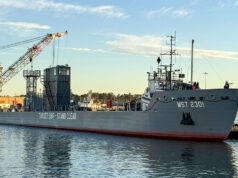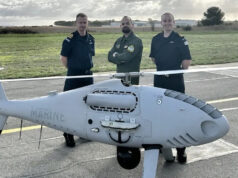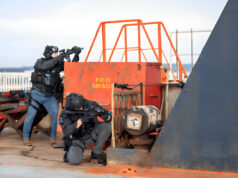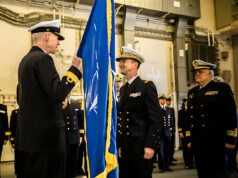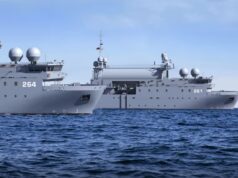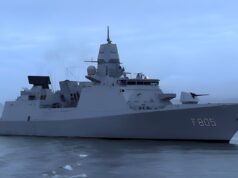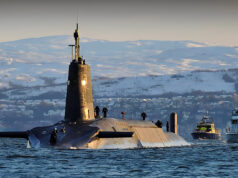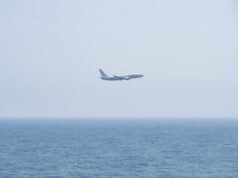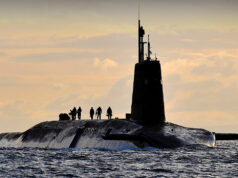Minister for Defence Procurement Harriett Baldwin and French counterpart, Laurent Collet-Billon have launched the next phase of a £117 million joint Maritime Mine Counter Measures project.
Halcyon, a small Unmanned Surface Vehicle (pictured above) can be deployed by the task force – from a Type 26 Frigate, for example – and the control centre can be containerised for rapid deployed for shore-based mission management.
The MoD said in a press release:
“The MMCM programme will develop cutting edge maritime mine warfare capability; a capability which will keep the UK and France at the forefront of autonomous systems technology. The development and deployment of unmanned mine clearance vehicle will help keep our personnel safe in challenging maritime environments.”
The Minister for Defence Procurement Harriett Baldwin said:
“This innovative project further strengthens the UK-French defence relationship and supports cutting edge research on both sides of the Channel. The development of advanced autonomous mine counter measures capability will safeguard our strategic interests, secure around 150 jobs in the UK supply chain, and protect our brave and skilled personnel.”

The MMCM programme builds on the commitment of the 2010 Lancaster House Treaty to strengthen bilateral cooperation between the UK and France in order to improve collective defence capability within Europe and NATO.
Laurent Collet-Billon, Délégué Général pour l’Armement said:
“Harriett Baldwin, Minister for Defence Procurement, and I launched today the construction phase of the MMCM project, cornerstone of France’s “Système de lutte anti-mines future” (SLAMF) programme. It is a step further in the accomplishment of the strategy initiated since the Lancaster House Summit in 2010 aimed at strengthening the effectiveness and operational interoperability of our mine warfare systems, and to support the excellence of the Franco-British industrial base.”
Such cooperation allows the UK and France to share costs, build expertise, and increase the ability of our Armed Forces to work together effectively and flexibly. A prototype will be delivered to each navy in 2019.
Led by Thales, this joint programme draws on the expertise of companies from both sides of the Channel to the benefit of both nations. Work will be shared between UK and French supply chains, as will the considerable export opportunities arising from such innovative technology. The programme will secure around 150 jobs across the country, including Somerset, Manchester and Fareham. The delivery of the programme will also open up opportunities for further collaboration on equipment and operations, supporting the security and prosperity of both nations.


